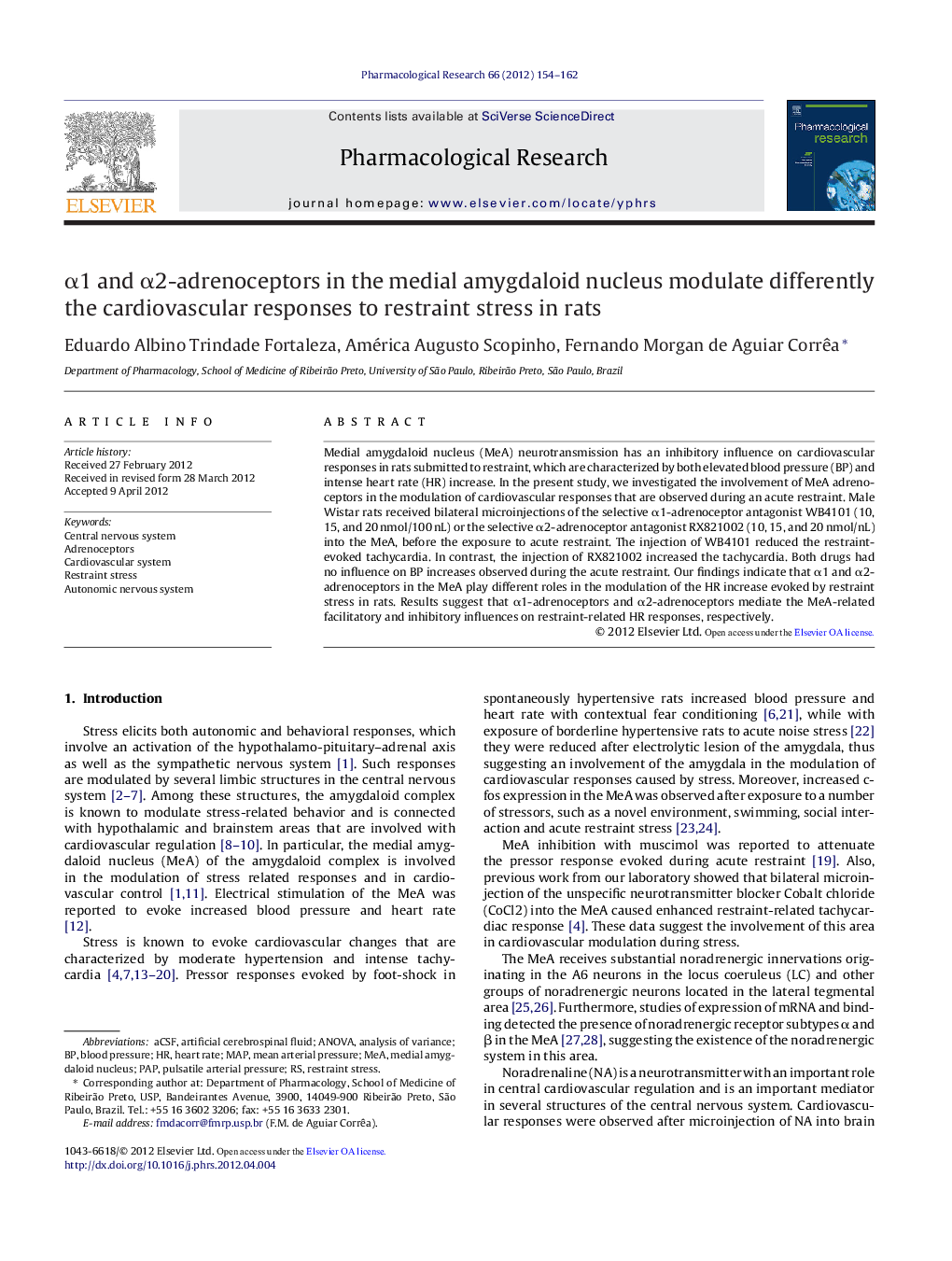| Article ID | Journal | Published Year | Pages | File Type |
|---|---|---|---|---|
| 5843829 | Pharmacological Research | 2012 | 9 Pages |
Medial amygdaloid nucleus (MeA) neurotransmission has an inhibitory influence on cardiovascular responses in rats submitted to restraint, which are characterized by both elevated blood pressure (BP) and intense heart rate (HR) increase. In the present study, we investigated the involvement of MeA adrenoceptors in the modulation of cardiovascular responses that are observed during an acute restraint. Male Wistar rats received bilateral microinjections of the selective α1-adrenoceptor antagonist WB4101 (10, 15, and 20 nmol/100 nL) or the selective α2-adrenoceptor antagonist RX821002 (10, 15, and 20 nmol/nL) into the MeA, before the exposure to acute restraint. The injection of WB4101 reduced the restraint-evoked tachycardia. In contrast, the injection of RX821002 increased the tachycardia. Both drugs had no influence on BP increases observed during the acute restraint. Our findings indicate that α1 and α2-adrenoceptors in the MeA play different roles in the modulation of the HR increase evoked by restraint stress in rats. Results suggest that α1-adrenoceptors and α2-adrenoceptors mediate the MeA-related facilitatory and inhibitory influences on restraint-related HR responses, respectively.
Graphical abstractDownload high-res image (72KB)Download full-size image
